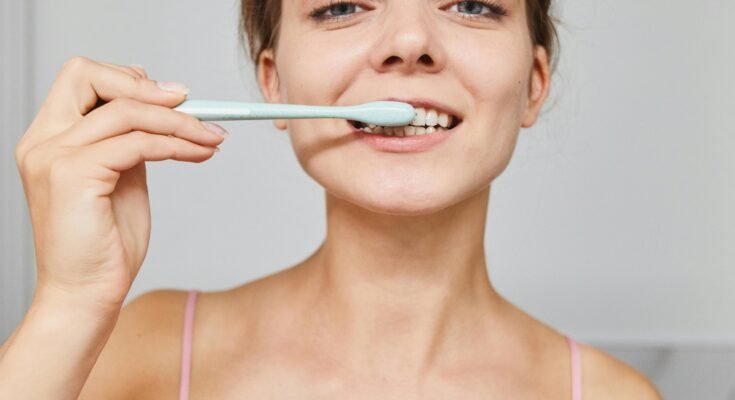Good oral hygiene helps prevent not only bad breath and cavities, but also maintains general health and wellbeing. Teeth cleaning, be it professional teeth cleansing or everyday oral hygiene, is one of the most important daily activities to help avoid dental illnesses while having beauty care at the same time. Let us examine teeth cleaning more closely- how it is done and how it is healthy.
In its simplest form, teeth cleaning is about scraping plaque and tartar off one’s teeth and removing any excess that is firmly attached to them. Plaque is a bacterial deposit that forms on the teeth and if not cleaned out often leads to cavities and gum disease. While, Tartar is a tough deposition of plaque which can only be done by a dentist.
Brushing teeth: At least 2 times per day, at least one should brush the teeth with fluoride toothpaste so as to avoid germs sticking and spotting problem areas.
Floss: Daily flossing is vital in removing plaque and debris which otherwise would rest in hard to clean spaces.
Combining all of the antibacterial benefits using mouthwash, the mouthwash will help get rid of bacteria and keep the mouth clean as well.
The Importance of Having Clean Teeth
1.Keeps Cavities at Bay: A routine cleaning removes plaque before it hardens and becomes cavities thus avoiding teeth fillings or other dental procedures.
2.Lessens Risk of Gum Disease: Most adults have some form of dental or periodontal disease, the most common being gingivitis which can get worse if ignored. Regular cleanings toward these problems because they help to decrease plaque buildup over time.
3.Increases Overall Health: There is a need for better oral hygiene and improving oral health care since poor oral health is associated with diseases like diabetes, heart disease, and respiratory infections. Thus, keeping them clean could prevent such diseases.
4.Improves Breath Aerosol and Halitosis: Brushing teeth on a regular basis along with cleaning teeth on a regular basis and removing bad breath that is caused by bacteria in the mouth.
5.Makes a person more confident: When you achieve a clean and healthy smile, your self-esteem and self-confidence are uplifted and this helps positively when socializing and during business opportunities.
Oral Health Compared to General health
Most evidence points to oral health being closely associated with overall systemic health, some bacteria could be transferred from the mouth to the blood leading to health complications for example:
Heart Disease: It has been established that periodontal disease is associated with increased risk of coronary heart disease and stroke. The microorganisms and the inflammatory process associated with gum infections may alter heart health.
Diabetes: There’s a bidirectional relat
The Importance of Brushing for Dental Health
If you are in the habit of brushing your teeth at least twice a day, then you can congratulate yourself for this beneficial chore not just for your oral hygiene, but for your entire body. Regular brushing prevents an array of dental problems, freshens your breath, and goes a long way in having a healthy body. In this piece, we will talk about the reasons and importance of brushing, correct methods of brushing, and other oral care tips.
Why Should You Brush?
1.Plaque: A thin layer of bacteria known as plaque tends to cover your teeth. Plaque must be removed through tooth brushing as it can develop into hard deposits that lead to cavities and gum disease. Brushing is a procedure that helps in this elimination of deposits.
2.Cavities: Using a fluoride toothpaste while brushing can improve enamel strength to withstand bacteria and eradicate accelerators of cavities. This is vital for children for whom teeth are still growing.
3.Gum disease: Gingivitis or the early stage of gum disease is when the gum line easily becomes inflamed. There is no doubt that healthy gums alone are crucial for good oral health which prevents even more severe diseases such as periodontitis.
4.Bad Breath: As bad breath is caused by decaying food particles and bacteria, brushing makes it easier to avoid these and remove the cause of bad breath. A clean mouth encourages confidence in social engagements.
5.Systemic Health Effects: Inadequate oral hygiene has been associated with conditions such as heart disease, diabetes
Effective Brushing Techniques
best toothbrushes for gum problems effective Brushing Techniques To get the best advantage with brushing, proper techniques should be adhered to: Select a Suitable Toothbrush: Brush your gums with a soft tooth brush in order to avoid any damage to them. There are also electric toothbrushes that are effective and may help one maintain technique. A more detailed explanation would be Use Fluoride Toothpaste: Fluoride assists in hardening the enamel on teeth making them to be less prone to decay. Use toothpaste that has been endorsed by the American Dental Association (ADA) Establish a brushing schedule at least twice a day: Consistently, try to ensure that you are brushing teeth at least twice a day, preferably in the morning and in the night, before sleeping. Minimally, every session should not be below two minutes. Proper techniques should be followed in every session; however, Make Sure, You Hold Your Brush At The Proper Angle: Make Sure the Comments Meet The Brush: Position the brush at a 45 degree angle at the junction with the gums. Always Begin With Lightweight Movements: Use lightweight exaggerated circular motions to clean the outer surfaces and the inner of the curved anchorage elements at the teeth COD. Use the supporting structures of the pillars as much as possible: Ensure the understatement of the chewing surfaces and the fang bones safeguarding the teeth are taken care of. Never during interaction with teeth please disregard your tongue! Although not visible through most parts, it is still affected by bacteria colonies, and this is able to give arise to halitosis. To remedy this, one can either lightly brush the tongue, or make use of a tongue scraper.
Efficient Oral Hygiene Routine
1.Floss Daily: Brushing is not adequate. Flossing cleans plaque and food particles stuck in the spaces between your teeth, in the area that a toothbrush doesn’t reach.
2.Rinse with Mouthwash: An antibacterial mouthwash also helps reduce the facctions of bacteria present in the mouth and keeps the breath odor neutral. It is advisable to opt for a mouthwash free of alcohol in order not to dry the mouth.
3.Reduce Sugary Foods: It is recommended to reduce the consumption of the highly sugary snacks and sugary drinks as they cause the increase in the plaque formation and cavities.
4.Drink Sufficient Amount of Water: Drinking sufficient amount of water aids in the flushing of food particles and assists in the consistent moisturization of the mouth helping one maintain oral health.
5.Regular Dental Check-Ups: Ensure you book appointments every 6 months if it’s for cleaning and check-up. Your dentist will be in a position to spot problems at an early stage and provide specific recommendations to improve or maintain your oral health.
Conclusion
Given the fact that brushing one’s teeth is an easy task, it is astonishing how many people neglect it, since it is one of the most important factors in maintaining oral and general health. This article has shown that if you follow the right brushing methods and practice oral hygiene regularly, you will avoid dental problems, enjoy pleasant breath and benefit your general well-being. Avoid the thought to carry the neglected mouth with the body because they are both essential and interrelated, so make in your daily routine brushing an important activity!




Please tell me more about your excellent articles
Thank you for your articles. They are very helpful to me. May I ask you a question?
Thank you for your articles. They are very helpful to me. May I ask you a question?